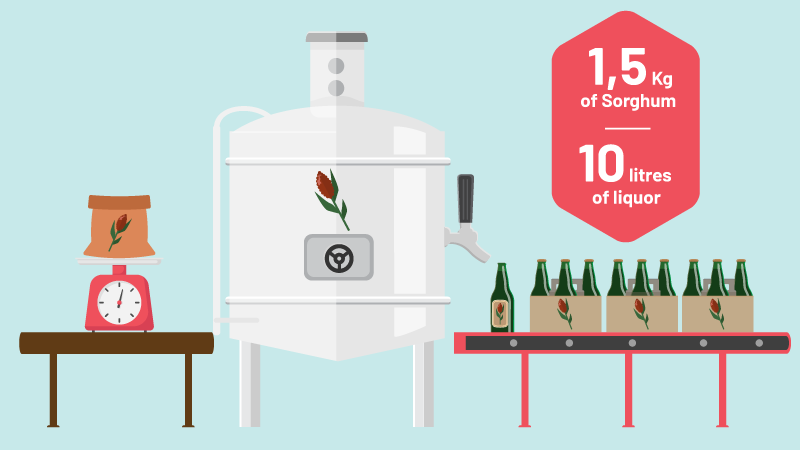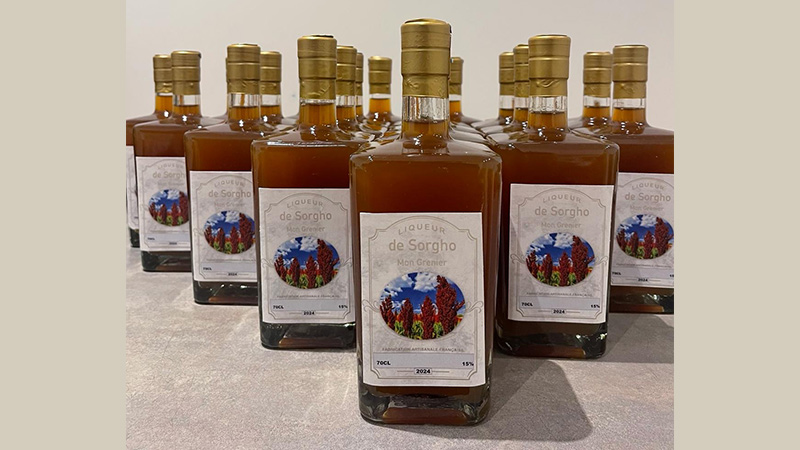About Sorghum Liquor – with Moderation


Going from banana wine to sorghum liquor takes but one step – which is just what Justin Faida did, in 2019. Located in the Essonne region, his company gets its raw material grains locally. The first customers already appreciate its low-alcohol sorghum beverage with a distinct flavour.
Justin Faida is not just trying out things. After a journalist career in Rwanda and in the wake of the 1994 war, he was looking for a new job. He decided to start a juice and alcohol business, based on processing various fruit: bananas, pineapple, ginger, hibiscus flowers, and others. When he arrived in France in 2007, he decided to continue his activity and set up a company – PHC Jus – specialized in processed exotic fruit. He tested various raw materials, to expand his range of juices and alcoholic beverages. “Very soon, I became interested in testing sorghum”, he recalls. “In the beginning, I procured my raw materials at the market in the town of Rungis. They consisted in grains from Mali, as I could not find any locally. Yet after I spent some time looking around, I found a neighbouring farmer, Eudes Coutté, who grew sorghum. I spoke with him about my project and he agreed to provide me with a few kilos”. And that’s where the story started.
Local Grains for Local Grocery Shops
“The first liquor bottles were sold two years ago, on the farm of my partners, who also sell other sorghum-based products, such as flour or ready-meals. The feed-back we have received from customers so far is very positive. They appreciate the liquor’s distinctive taste. To cover up the bitterness of sorghum, I add a bit of honey to the recipe, in order to render it a little sweeter. I intend to take advantage of its low alcohol level (around 15 proof) to attract a wider public. To appreciate it even more, I recommend drinking it fresh.” Justin’s long-term objective is to sell his liquor through the groceries in his region.

1,5 Kilos of Sorghum for 10 Litres of Liquor
The manufacturing process is actually quite simple. “After having received the sorghum grains, I let them emerge and then dry them up at 40°C for two to three days”, he explains. “I then grind them and obtain a mush that will ferment and get changed into liquor.” To produce 10 litres of liquor, you need an average 1,5 kilos of sorghum grains. “The production process has yet to be refined, as our current technique still generates far too much residual matter, in my opinion”, he admits. It is an additional challenge that does not intimidate this entrepreneur. He is actually thinking of yet another project: to produce sorghum beer. The tests are already on the way and look promising.

Continue ?
When Sorghum Invites Itself at the Table of a Starred Restaurant

Vieille Graine Joins Sorghum ID













